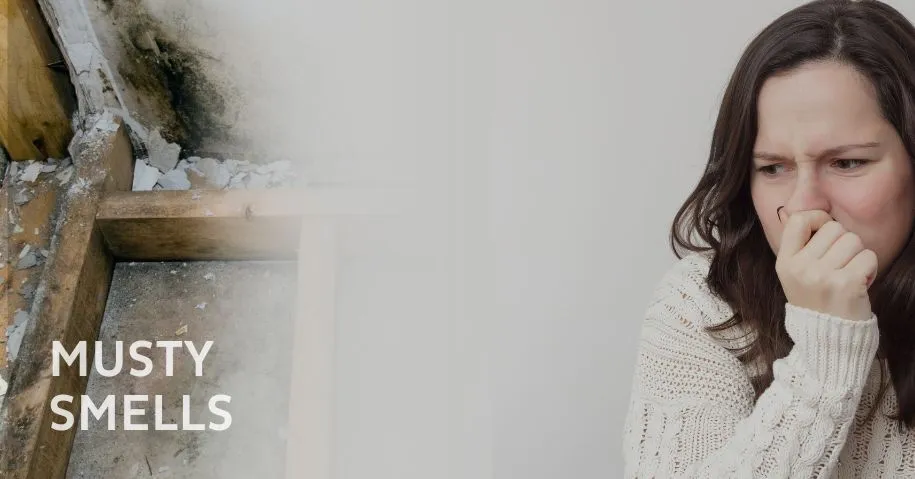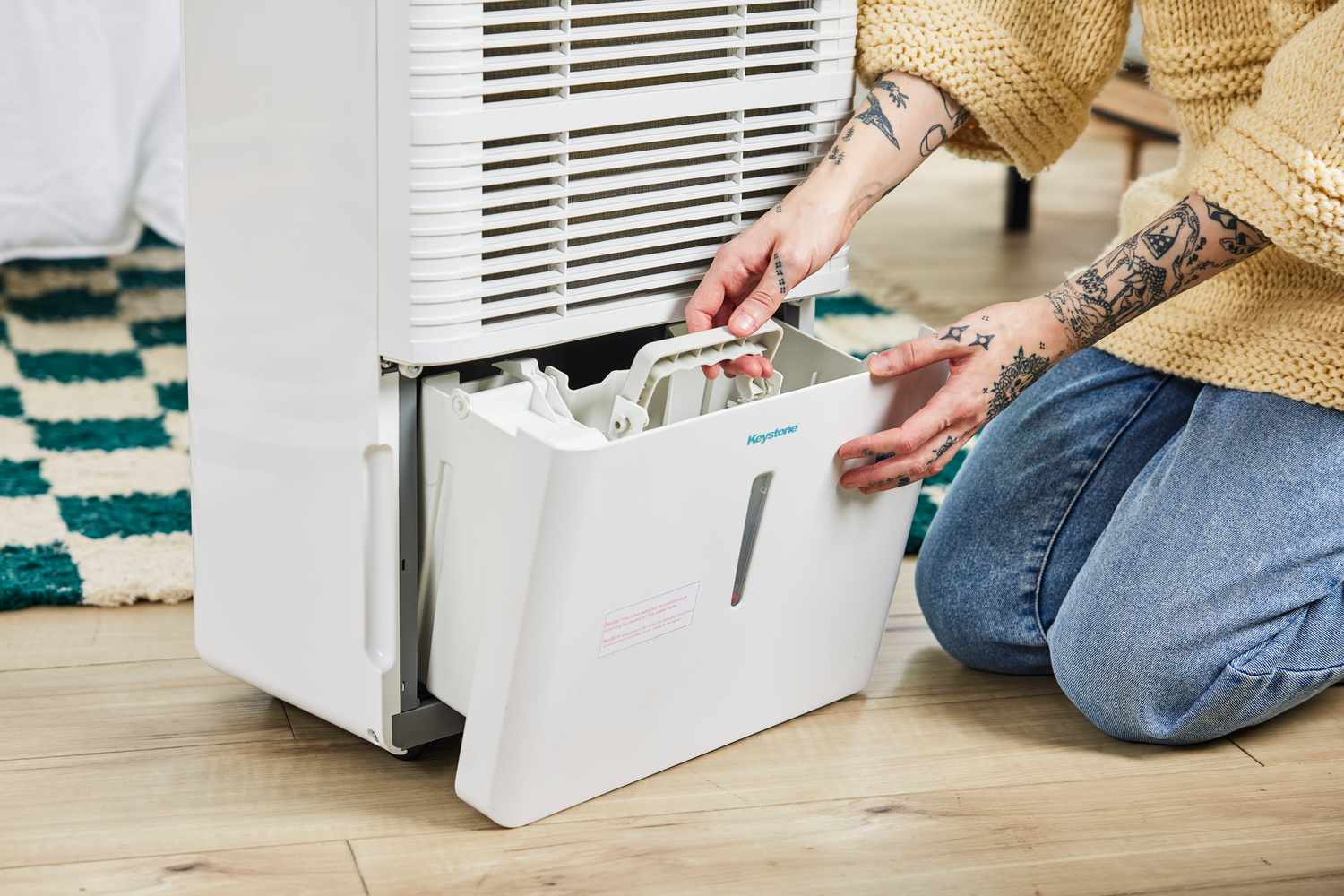
What Causes Musty Smells in Basements?
Musty odors in basements are usually caused by excess moisture and poor ventilation. The dark, damp environment of a basement creates the perfect conditions for mold and mildew to grow, which often leads to musty smells. Other common causes include water leaks, high humidity, and organic materials like wood, paper, or fabric that become damp and allow mold to thrive.
1. Mold and Mildew Growth
Mold and mildew are the most common culprits behind musty odors. These fungi grow in damp environments and release a distinctive smell as they feed on organic materials. If you notice musty smells, it’s essential to inspect your basement for visible signs of mold growth on walls, floors, or furniture.
2. High Humidity
Even if there’s no visible water damage, high humidity in your basement can cause condensation to form, creating a breeding ground for mold and mildew. Basements often lack adequate ventilation, which traps moisture and contributes to musty smells.
3. Water Leaks
Leaks from pipes, foundation cracks, or basement windows can introduce water into your basement, leading to damp conditions that foster mold growth. Even a small, unnoticed leak can create musty odors over time.
How to Get Rid of Musty Smells in Your Basement

Now that you understand the causes of musty odors, let’s dive into how to eliminate them for good. The key to getting rid of musty smells is to address both the odor and its underlying cause—moisture.
1. Improve Ventilation
Basements often suffer from poor airflow, which allows moisture to build up. Improving ventilation is one of the simplest ways to reduce musty odors. Here’s how you can improve ventilation in your basement:
- Open windows and doors to allow fresh air to circulate.
- Install exhaust fans to remove humid air and bring in dry air.
- Use ceiling or portable fans to keep air moving throughout the space.
Proper ventilation can help reduce humidity levels, which in turn reduces the likelihood of mold growth and musty smells.
2. Use a Dehumidifier
If your basement has high humidity levels, investing in a dehumidifier can make a big difference. A dehumidifier works by pulling moisture out of the air, creating a drier environment where mold and mildew are less likely to grow. Be sure to choose a dehumidifier that’s appropriately sized for your basement, and run it consistently during humid months to keep moisture levels in check.

3. Clean and Disinfect Surfaces
Once you’ve improved ventilation and reduced humidity, it’s time to tackle the musty smell itself. Mold and mildew can leave behind spores even after moisture is removed, so cleaning and disinfecting surfaces is essential. Here’s how:
- Mix a solution of one part bleach to ten parts water to scrub moldy areas. You can also use vinegar, which is a natural mold killer.
- Wipe down walls, floors, and any affected furniture to remove mold, mildew, and grime.
- Allow surfaces to dry thoroughly before moving items back into the basement.
For more extensive mold remediation, it’s best to call in professionals like Citywide Mold Mitigation who can assess and remove mold safely and effectively.
4. Address Water Leaks and Cracks
Eliminating musty smells requires you to fix any sources of water intrusion. Check for leaks around basement windows, foundation cracks, or plumbing lines that may be allowing water to seep into your basement. Sealing these leaks with waterproofing solutions can prevent moisture from entering and contributing to the odor problem.
If your basement has more serious water issues, you may need to consider installing a sump pump or waterproofing system to prevent flooding or dampness during heavy rain.
5. Use Odor Absorbers
While addressing the moisture and mold will eliminate the source of the smell, you may still want to use odor absorbers to remove lingering musty smells. Common odor absorbers include:
- Baking Soda: Place open boxes of baking soda around the basement to absorb odors naturally.
- Activated Charcoal: Activated charcoal is excellent at neutralizing odors and can be placed in small bags around the room.
- Vinegar: Leave bowls of white vinegar in the basement to help neutralize odors over time.
These odor absorbers can help freshen up the space while you work on the underlying issues causing the smell.
Preventing Musty Smells From Coming Back

Once you’ve gotten rid of the musty smell, you’ll want to take steps to keep it from returning. Prevention is key when it comes to maintaining a clean, fresh-smelling basement. Here are some tips to keep your basement dry and odor-free:
1. Keep the Basement Dry
Moisture is the root cause of most musty odors, so keeping your basement dry is essential. Use a dehumidifier during humid months, and regularly check for leaks or water intrusion. You can also consider using moisture-absorbing products like silica gel or calcium chloride to help keep the air dry.
2. Regularly Inspect for Mold
Even after cleaning, mold and mildew can return if moisture levels rise. Inspect your basement regularly for any signs of mold growth, especially in dark, damp areas like behind furniture or under carpets. Catching mold early can prevent it from spreading and causing odors.
3. Maintain Proper Ventilation
Good airflow is key to preventing moisture buildup and mold growth. Keep windows open or use fans to promote air circulation, and consider adding additional ventilation systems like exhaust fans to improve airflow.
4. Store Items Properly
Items stored in basements, like boxes, furniture, and clothing, can absorb moisture and contribute to musty smells. Store items in plastic bins instead of cardboard boxes, and keep them elevated off the ground to prevent moisture absorption.
FAQ
| Question | Answer |
|---|---|
| Why does my basement smell musty even though it’s dry? | Even if your basement appears dry, high humidity levels can create dampness that promotes mold and mildew growth, leading to musty smells. Using a dehumidifier and improving ventilation can help solve this issue. |
| Can mold in the basement make you sick? | Yes, mold spores can cause respiratory issues, allergies, and other health problems. It’s essential to remove mold and address any moisture issues to maintain a healthy living environment. |
| What’s the best way to prevent musty smells from coming back? | To prevent musty smells from returning, keep the basement dry with a dehumidifier, ensure proper ventilation, and regularly inspect for mold and moisture issues. |
| How do I know if my basement has mold? | Signs of mold in your basement include visible spots on walls or floors, musty odors, and increased allergy or respiratory symptoms. If you suspect mold, it’s important to address the issue quickly. |
| Is it safe to use bleach to remove mold in the basement? | Yes, a diluted bleach solution can effectively kill surface mold. However, for large or persistent mold problems, it’s best to contact a professional for safe removal. |
If you need professional help getting rid of mold or musty odors in your basement, contact Citywide Mold Mitigation today for expert remediation services.

